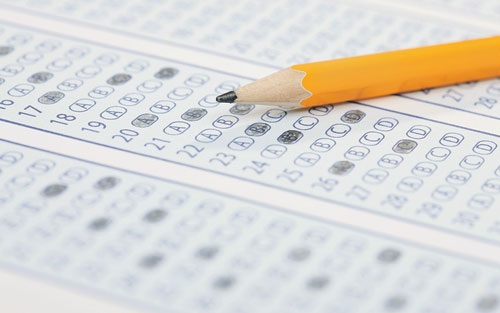
The Gilder Center at the American Museum of Natural History: A Parents Guide to exploring this Now Open Center
We’re sure we visited the American Museum of Natural History before kids entered the picture. Still, like many parents, we, along with travelers from around the world, head uptown to indulge in the panoramic windows, planetarium, library, cultural artifacts (and more) every year. Last year alone, there were one million visitors, which is about to go up with the museum’s newest addition, the Richard Gilder Center for Science, Education, and Innovation. Located on the west side of the campus at Columbus Avenue and 79th Street, in Theodore Roosevelt Park, this stunning (it is captivating, trust us) extension of AMNH is now open to the public.
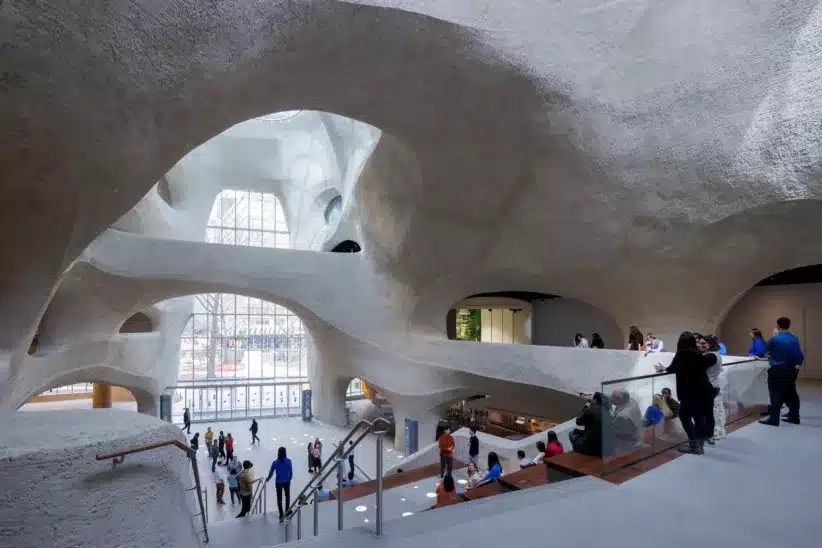
The Richard Gilder Center for Science, Education, and Innovation wing is the new museum that New Yorkers didn’t know we needed but will be delighted it is now part of our city’s cultural offerings. In a recent press release, New York City Mayor Eric Adams shared, “AMNH has been a beacon in our city for decades, bringing a glimpse of the many wonders of the world to New Yorkers. As one of the City’s largest cultural capital projects in recent history, I am excited to see what innovative and captivating exhibitions our City will get to explore next.”
We are also excited, and it all started upon our first glimpse of this iconic center when it was under construction, and now that it is officially open -we are thrilled for you to to see it!
There is a lot to take in at AMNH’s newest addition, we want you to find your own gems on your visit but also wish to provide a guide so you can strategize your visit.
Admission at AMNH/Richard Gilder Center for Science, Education, and Innovation
Your admission ticket for AMNH is also valid at the Richard Gilder Center for Science, Education, and Innovation. However, the museum still requires timed reservations; reserve them here. Once you purchase your ticket online, you can pick the time slot for the exhibitions you wish to visit; yes, they are booking up, so please be aware of this. While most of the exhibits are part of your ticket, some you can visit only with a purchased ticket (not a pay-as-you-wish ticket open to NY, NJ, or CT Residents ).
The Richard Gilder Center for Science, Education, and Innovation
The center is nestled by a vast landscape developed by Reed Hilderbrand (along with community input), which is airy and open. Pathways are wide enough for a stroller (yay), and there are seating areas.
As soon as you enter the Gilder Center, you’ll be at the heart of the five-story Kenneth C. Griffin Exploration Atrium. The 230,000 architectural space was designed by Studio Gang, led by Jeanne Gang researched caves and canyons, which inspired the design of this gorgeous space. Designed in the shape of steel, glass with what the museum has coined as “shotcrete,” invites sunshine throughout the center. The space was designed for natural light to radiate through the skylights. This glow hugs the surrounding environment as well as the large picturesque windows that can be found in many parts of the center. With this new edition, it is easy to see how this center’s goal is for people to understand and see science in educational, fun, and creative ways.
Psst…Acupuncture: Experts on What Parents Should Know
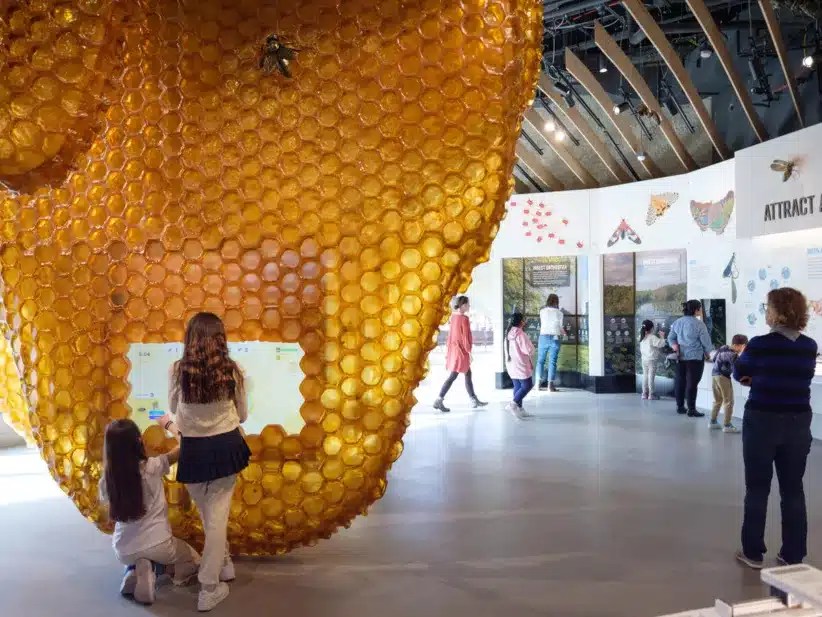
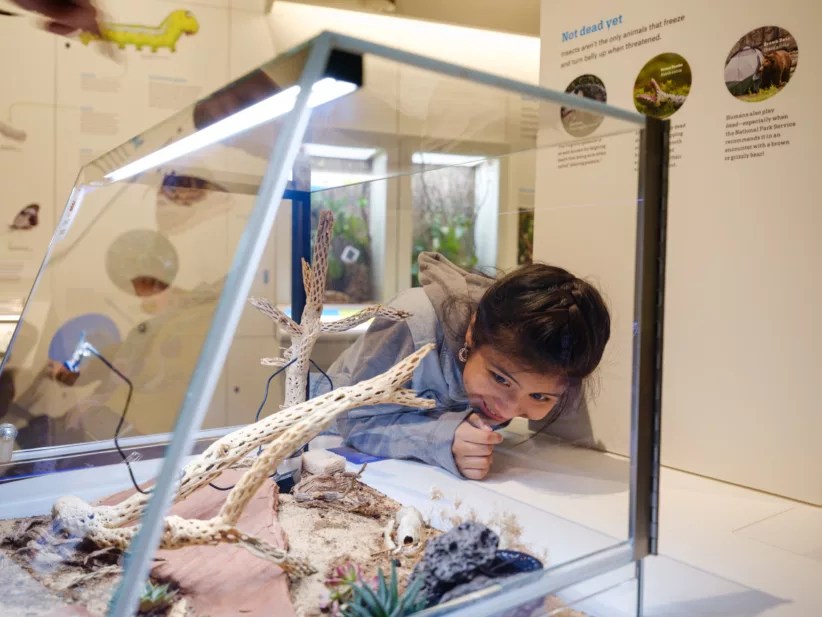
Bug Out at the Susan and Peter J. Solomon Family Insectarium
The curators at the Gilder Center want you to love bugs, like really love bugs. And they show you why at the Susan and Peter J. Solomon Family Insectarium located on the ground floor. This 5,000-square-foot space is about education, showing why these diverse groups of insects, animals and more are crucial to our planet and why we must value them. Seriously, at one point, a curator made a case for the New York roach, and we were all in, yay, cockroaches. In this space, kids will be introduced to as many of the 30 orders of insects as possible and can learn about their ecosystems, evolution, and how they benefit us. Hint, there are many ways and reasons we need to understand insects. In this space, you can explore the Ant Vision station -check out the ants in action, and learn about bugs through interactive touch screens that teach about our boroughs’ insects and how they are essential to the ecosystem. And the bees get extra love, for our planet is in trouble without bees. The 8,000-lb resin model is stunning and with a tap at the screen, be ready to be educated about honey bees.
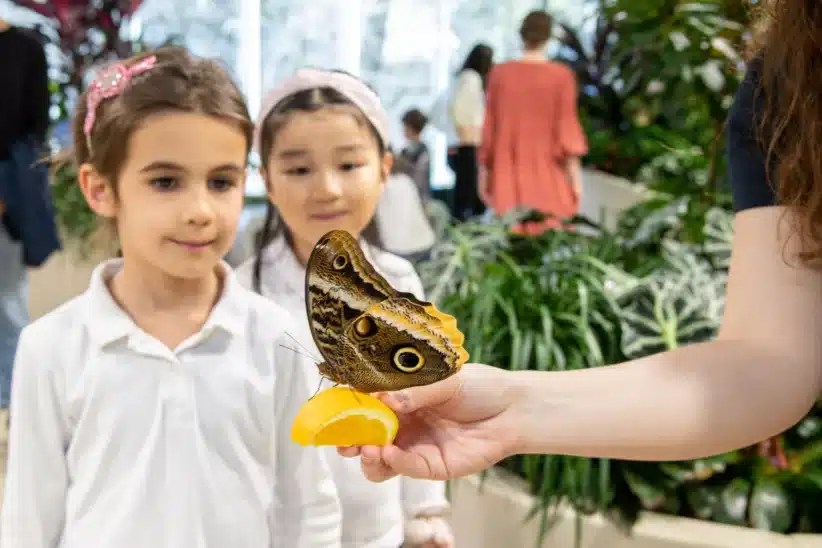
Davis Family Butterfly Vivarium at Richard Gilder Center for Science, Education, and Innovation Year-round
If you have not yet had the opportunity to enjoy the seasonal Butterfly Conservatory at AMNH, you will not want to miss this immersive experience. You will be happy to learn that the butterflies will now be full time residents in the 3,000-square-foot Davis Family Butterfly Vivarium. Their new home is located on the second floor in a 2,500-square-foot space where you will find up to 1,000 free-flying beauties. There will be boards that identify the up to 80 species flying about to learn all about these creatures. Your kids will learn about the butterfly’s life cycle and more in the pupae incubator. Kids will love the magnifying glasses at the feeding dishes; there will undoubtedly be a gorgeous butterfly snacking on something sweet.
To enter the space, you go through two sets of doors before you enter as the room is climate (feels like a warm, humid NY day) controlled for these gentle species, and we expect there will be a line as the museum is careful to gently bring visitors through so the butterflies can safely go about their day. This section is included in a purchased ticket (not the pay-as-you-wish option)- don’t fret; the vivarium is enclosed in glass windows where you can peek.
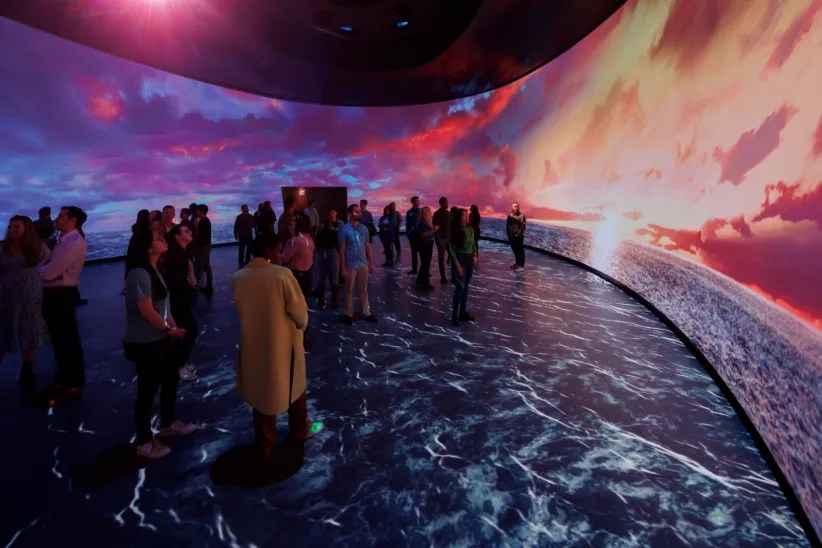
Invisible Worlds
From the first under-construction visit, it was understood that the Gilder Center knows its audience. While we had a sneak peek, most press media kept expressing how this museum would completely wow kids. While excellent for all ages, the Invisible Worlds (located on the third floor) also forays into kid and teen territory with a science-and-art 360-degree experience that they may even stay off their phones for because this experience is a vibe and one that should be taken in. The core of this life on earth ‘experience’ is to understand how on a cellular level, we are all interconnected and was created with data visualization from the museums’ team and top researchers from around the world.
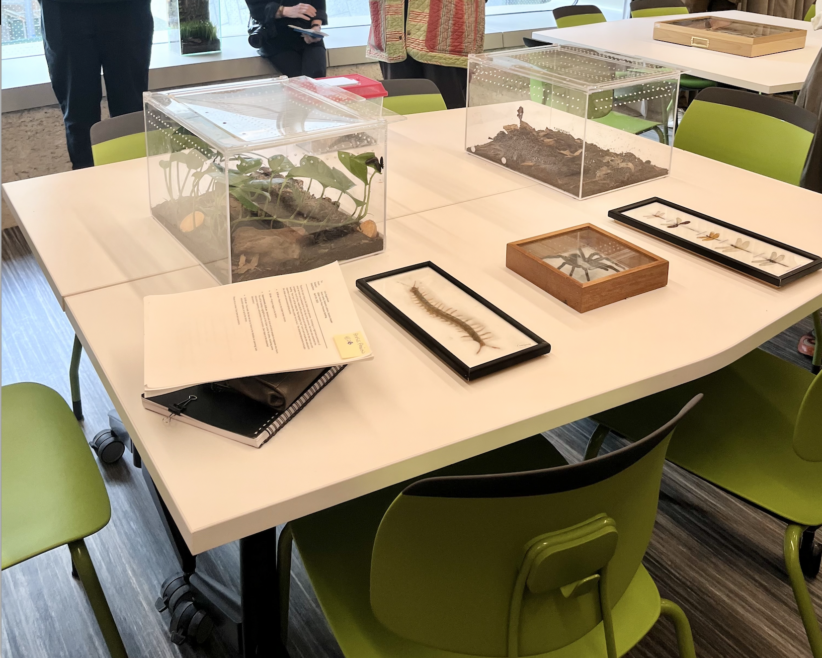
The Gilder Center includes 18 classrooms that will be used for after-school programs and field trips. Come fall, working with Urban Advantage Program; the center will start a residency program for students, The Beyond Elementary Explorations in Science (BEES) pilot.
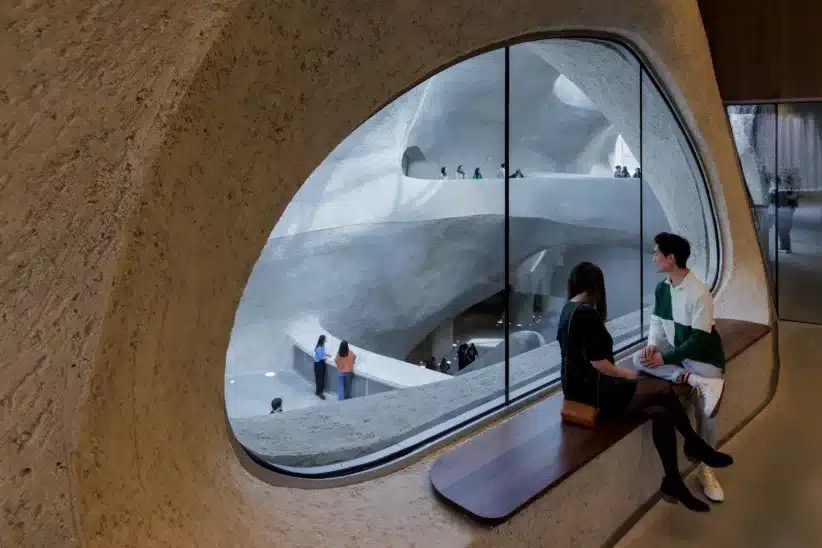
Helpful Tips:
You can bring a stroller, and there are elevators, but this museum will get busy. If your child is in the light stroller phase, definitely bring it. If you carry your baby/toddler, a baby carrier will allow you to enjoy the stairs (the view is phenomenal.)
Table service dining of American cuisine with both local and and global influences can be found at the Restaurant at Gilder on the second floor.




















